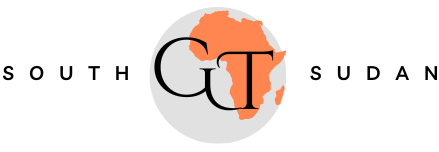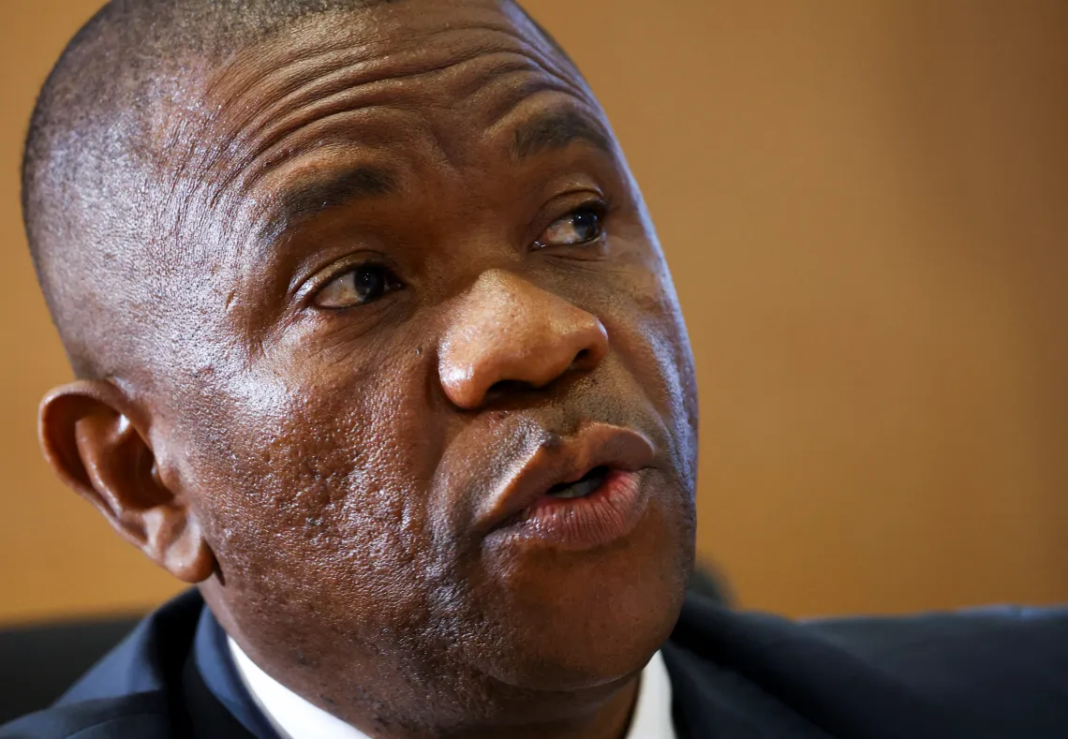KwaZulu-Natal Police Commissioner Lieutenant General Nhlanhla Mkhwanazi speaks in September at a Commission of Inquiry into his allegations that senior police officials colluded with criminal syndicates in South Africa. On October 9, he spoke with CPJ about his call for journalists from certain outlets to be surveilled by state security agents. (Photo: Reuters/Siphiwe Sibeko)
New York, October 10, 2025
The Committee to Protect Journalists is alarmed by KwaZulu-Natal provincial police commissioner Nhlanhla Mkhwanazi’s doubling down on his call for lawmakers to endorse the surveilling of journalists by South Africa’s State Security Agency and for reporters to be jailed for misinformation.
In a text exchange with CPJ on Thursday — following two days of testimony earlier in the week before an ad hoc parliamentary committee probing his explosive July claims of the “capture” of the criminal justice system by rogue police, corrupt politicians, and crime syndicates — Mkhwanazi said he did not have issues with “journalism as a profession.”
However, he declined to retract his request to lawmakers, which CPJ cautioned was dangerous and, if enacted, would effectively criminalize journalism when the media are facing unprecedented threats worldwide. A record 375 journalists were behind bars in CPJ’s latest annual prison census on December 1, 2024.
While Mkwanazi praised some journalists for exposing corruption, he insisted that “we must isolate and remove those unethical individuals who tarnish the image of the profession.”
Mkhwanazi declined to explain why he did not consider the Press Council of South Africa’s existing mechanism of independent co-regulation — by representatives of both the press and the public — to be the most appropriate means of addressing unethical journalism.
“Lieutenant General Nhlanhla Mkhwanazi should honor his oath of office by upholding and protecting South Africa’s constitution, which guarantees media freedom — not drag the country back to the repressive days of apartheid when journalists were spied on, criminalized, and jailed for their work,” said CPJ Africa Director Angela Quintal.
“If Lt. Gen. Mkhwanazi has a beef with certain journalists, he should provide credible evidence to substantiate his claims, present it to their media bosses for disciplinary action if warranted, or use South Africa’s robust system of independent co-regulation to ensure journalists are held to account.”
On Tuesday, Mkhwanazi urged lawmakers to authorize the State Security Agency “to conduct a thorough counterintelligence investigation of the role of the media in this country.”
A day later, he accused a journalist — whom he named under parliamentary privilege and without substantiation — of being “handled” by, or on the payroll of, rogue members of the police’s Crime Intelligence Division, who he claimed were spreading misinformation. The accusation was rejected by the journalist’s newspaper. Mkhwanazi said other journalists from media outlets that he named were also similarly compromised.
Mkhwanazi called on parliament to “put measures in place” to ensure “a heavy penalty” for mistakes made by journalists, saying those responsible should not only lose their jobs, but “must land up in prison.”
The South African National Editors’ Forum and the independent News24 site linked Mkhwanazi’s attack on the media to journalists’ reporting that exposed police corruption.




